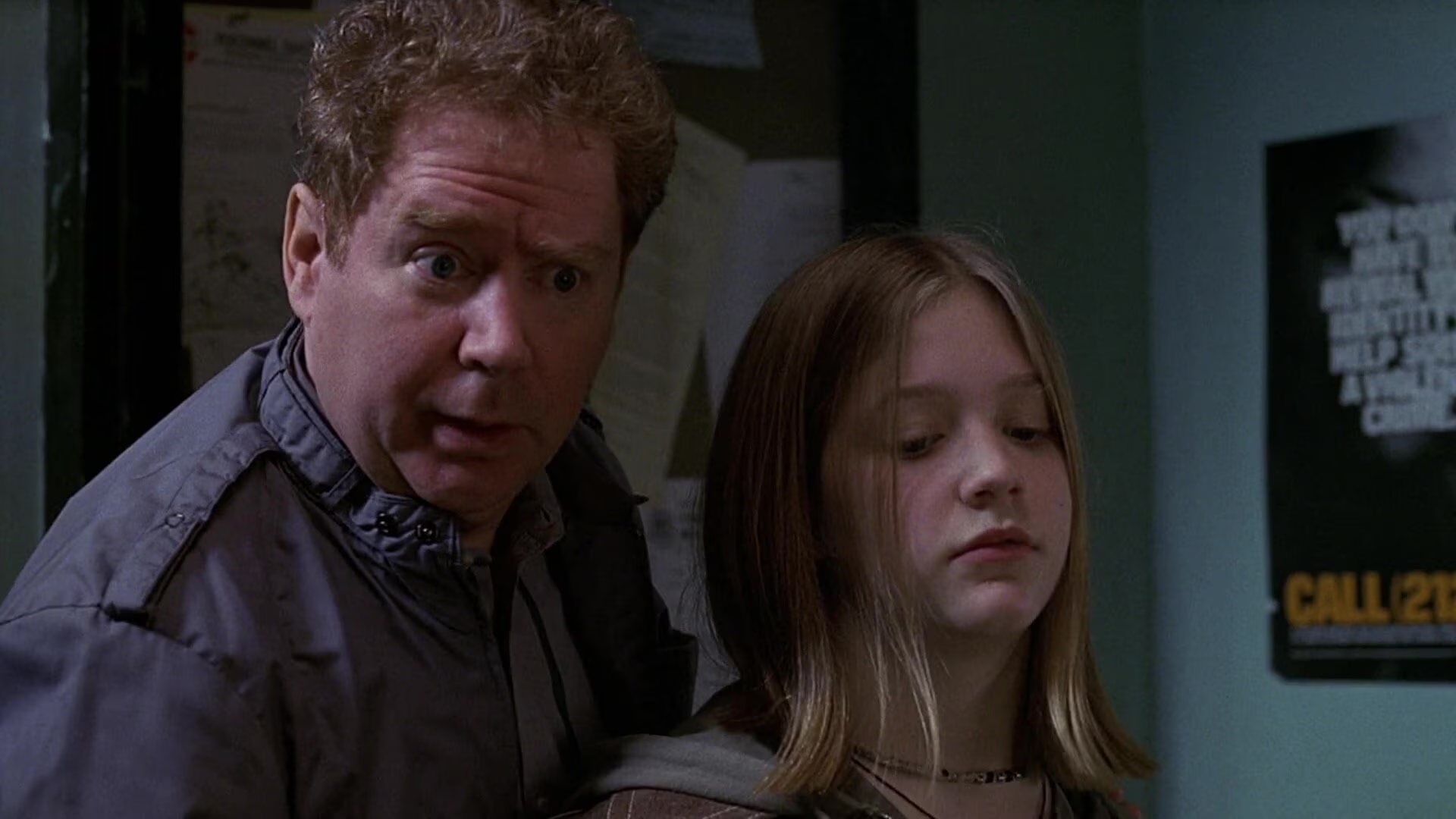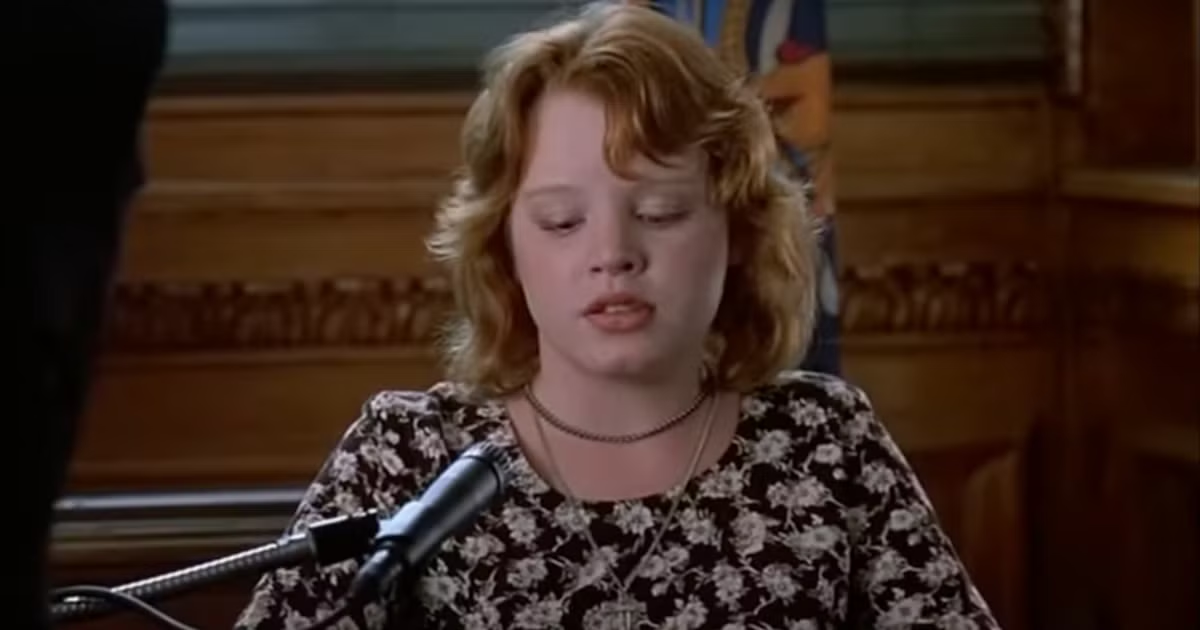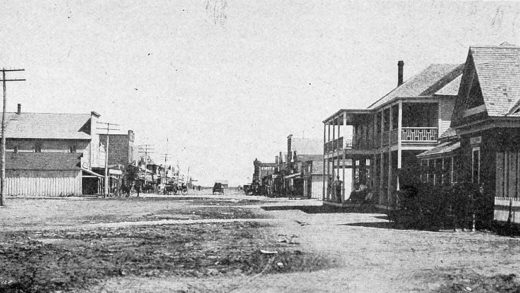— Law & Order (1990-2010), Season 8, Episode 22 “Damaged,” aired May 6, 1998 on NBC.
Directed by Constantine Makris; written by Janis Diamond.
Starring Jerry Orbach, Benjamin Bratt, S. Epatha Merkerson, Sam Waterston, and guest starring Lauren Ambrose.
The Plot of “Damaged”: Who’s Damaged?

In this episode, Lenny and Rey are investigating a shooting that initially appears to be targeting teachers in the parking lot of a high school. However, in the course of the investigation, they realize that the teachers were incidental bystanders, and in fact the shooting was between a group of boys and a lone girl.
As the investigation continues, they discover that the girl shooter was going after these boys because they had “raped” her sister [with these scarequotes I am indicating that this is in question]. The sister is intellectually disabled.
However, it’s important to remember that this episode aired in the 1990s, and although that was the area of political correctness, the term used then was retard. In fact, the word retard is used repeatedly throughout this episode, and to contemporary ears this sounds both antiquated, generously, if not offensive.
Bad Timing? (#1)?
Like watching Sixteen Candles, we realize that this episode has not aged well.
The word “retard” has become completely verboten in normal speech. I dare you to try to get away with using it casually in the office. I DARE YOU!
The boys do not seem sorry for their actions; to the contrary, they seem indignant in being questioned, never admitting that they may have overstepped the bounds of conscience. The girl is very clearly disabled, but she doesn’t want to be treated differently from others. And she seemed to engage in sex with consent with these boys.
The question appears to be whether she is capable of consenting.
What’s interesting is how the courtroom drama takes place. McCoy has to prove that the boys knew that she was developmentally disabled and took advantage of this fact to prove that this was rape and not consensual sex. The prosecution appears to achieve this goal when the jury comes back finding all three of the defendants guilty. But the judge encourages the defense to use a special statute to throw out the verdict.
McCoy, Ross, and the viewers are naturally discombobulated.

Bad Timing (#2)?
The actress Lauren Ambrose is not intellectually disabled. As you may know, she played a central role in Six Feet Under (2001-05) as well as many other significant roles.
I underline this because again I wonder whether today we might reasonably ask of the judgment in casting a non-intellectually disabled person in that role. And don’t even get me started on the hilarious yet serious speculations provoked by Robert Downey Jr.’s character’s character and comments in the film Tropic Thunder (2016).
But McCoy doesn’t stop there and without waiting for an appeal, is somehow able to get one of the boys to turn on another, on the basis of a different charge. He finds evidence to show that in fact, the boys did even use the word retard and knew clearly that this girl was developmentally disabled. All that he needs to show is that the boys knew this. However, the defense is permitted to recall the intellectually disabled girl to the stand, and when they do so she makes a plea for how she may know that they called her this but that’s not what they meant.
The judge again uses this as an excuse to decide for the sake of defense.
Analysis of “Damaged”: Why Do The Good Guys Lose?
One of the things that I’ve liked about the show is that the “good guys” don’t always win. In fact, the series of episodes during the eighth season present more than a few losses, and some of them notable.
During “Nullification” (S8E5) McCoy and Ross prosecutes a group of “sovereign citizens” [my word, not theirs] who rob a money delivery service to presumably fund their revolution against the US government. They claim to be in battle against the government, thereby making their action something that outstrips the capacity of the court to find them guilty of robbery and murder (charges of which only citizens can be guilty). The jury is deadlocked.
In “Damaged” even the judge appears monstrous as, in one scene, he overrules McCoy’s objections to permit a developmentally disabled girl to talk about how she dressed in a sexy fashion and then to describe the sex with the boys.
One might imagine the first overturned jury verdict was to heighten the audience’s outrage and then in turn double their sense of satisfaction when the judge was finally shown to be wrong. But neither is that desire sated.
Finally, the episode ends with the father of the girl asking McCoy not to take the trial to appeal so as to permit the girl to keep her dignity, because she doesnt’ want to be known as the “retard who was raped”.
From the perspective of the enlightened (in which I include myself, acknowledging the sarcasm) we are horrified that this girl is unable to provide consent and is taken advantage of, cruelly no less, without any consequences for her assailants.
But from the perspective of the girl one should ask if she is capable of deciding for herself how to enjoy her sexuality. At one point the defense attorney asks if she liked having sex with the boys and she says yes, she did. That it made her feel special. And she goes on to say that — like any teenager [my words] — she has urges and feelings.
Bad Timing (#3)?
Is this second perspective one that we can countenance?
I’m going to say no. I’m not saying that we should, necessarily. More importantly, I’m wondering how we arrived at a position by which such acknowledged is prohibited.
Is Law & Order a non-character-driven legal drama?
The dynamics of the television series Law & Order — a non-character-based serial drama — are at issue in this episode.
I say this because at the end of the episode, the subplot (stretching through at least the preceding) involving Lennie’s daughter who is arrested for narcotics finds its end with the daughter being killed by the person that she’s helped the ADA prosecute.
Is it really a non-character-based drama? Yes, in the sense that you do not need to know these characters in order to follow the primary drama.
But through the episode we’ve learned (1) of the Lt. Van Buren’s ongoing internal dispute with the department after getting passed over for promotion as well as (2) the continuing effort of a former Adam Schiff supporter whose son was prosecuted for murder (“Burned” S8E9) and is now campaigning against Schiff. We also learn that (3) Rey’s requested a transfer to desk duty to assist his wife who has been diagnosed with MS.



